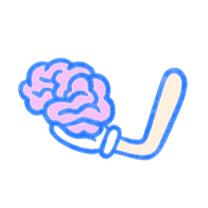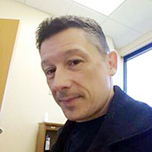Everyone has an addiction story
I’ve become convinced that each of us has an addiction story. Whether it is our own or one we have experienced through the life of someone we know, the problem of substance abuse is so common that every single one of us has been touched by it.
Not all of us have been affected by other kinds of mental illness, such as thought or personality disorder; but if you were to ask anyone you meet on the street to tell you a story about addiction, almost everyone could.
These stories are some of the most tragic and affecting in the mental health field. Individuals battle a wide range of negative outcomes related to substance abuse: loss of relationships, employment, health, and life itself.
But the cascade of effects on others makes addiction a shared disorder with a radius that extends to friends, family, employers, and society at large. Children who emerge from families where substance use is a challenge face further difficulty in life as they try to learn what ‘normal’ is.
Loved ones find themselves powerless to alter the course of a tragedy they see unfolding before their eyes. The healthcare culture itself struggles to cope with the ever-increasing demand for those with addiction credentials who can intervene with the right knowledge at the right time to make a difference.
Substance use by the numbers
Addiction is a steadily worsening public health crisis. Overdoses now kill more people than breast cancer, guns, and automobile accidents combined.
Every year, addiction costs the public over $740 billion dollars in crime, lost work productivity, and health care expenses. More than half of state prisoners and two-thirds of sentenced jail inmates meet the criteria for drug dependence or abuse.
Overdoses are rising among diverse communities as well, with rates for Black and Latinx individuals far exceeding the rates for white individuals. These facts hint at the breadth and complexity of the issue under normal circumstances. The COVID-19 pandemic only made the phenomenon more complicated and more severe.
As individuals coped with new stresses, new health care needs, a variety of restrictions, and the anxiety and depression of coping with the pandemic (as well as the loss for varying lengths of time with their established support networks), increases in overdoses went up in at least 42 states.
A shortage of help
One of the most troubling facts about the addiction crisis is the lack of help for those affected. As the phenomenon has worsened, staffing that is trained to help individuals struggling with addiction has not kept pace.
Only about 1 in 10 people who are in need of addiction treatment get specific, targeted help administered by an expert in the field.
Referrals are not made and the crucial conversations are missed that might break the cycle and give those suffering from addiction a chance at recovery. This is especially troubling, as treatment that is specific to addictions is proven to be both cost-effective and clinically effective.
The picture is a troubling one for those of us who work in mental health care. We are not only dealing with a historic lack of nurses, doctors, mental health practitioners of all kinds, and line staff, but we are seeing more and more people with co-occurring disorders. This means in this case that a substance abuse problem is present along with another kind of mental health diagnosis.
The IC&RC Alcohol and Drug Counselor Certification
There are many who want to help, but treating individuals with addiction problems requires training and knowledge. One good way to qualify is to gain the IC&RC (International Credentialing & Reciprocity Consortium) ADC (Alcohol and Drug Counselor) certification.
As the IC & RC’s most widely recognized credential, it is designed to be an entry-level certification that can help people from a variety of health backgrounds gain a meaningful foothold in the field of addiction treatment.

For those who have not treated addiction with a specific state-recognized credential, the ADC can be a meaningful first step in a field where the need is rapidly growing. For those who have existing healthcare credentials of other kinds, the IC&RC ADC certification can be the additional qualification that helps mark the holder as someone who has devoted time and effort to studying and treating the addiction phenomenon.
Though not available in all state jurisdictions, an IC&RC ADC qualification can help the credentialed professional secure employment as a substance abuse counselor, program administrator, or consulting professional. It can also be the basis for further study and credentialing that can open even more doors and make a resume more competitive in the already high-need industry of healthcare.
The IC&RC ADC credential examination consists of 150 multiple-choice questions broken out into the following covered areas:
- Screening, Assessment, and Engagement
- Treatment Planning, Collaboration, and Referral
- Counseling
- Professional and Ethical Responsibilities
Summary
Though everyone has an addiction story, almost everyone also knows a recovery story. Some of the most inspiring narratives in healthcare come from those who, with adequate professional help, have conquered their addiction problem and gone on to make a new life for themselves.
Many of these individuals go on to help others who are facing similar problems in their own life.
You can be a part of the solution to this major problem. You can be a part of someone’s recovery story.


